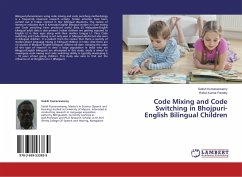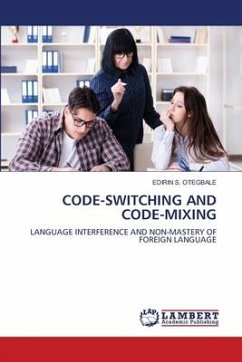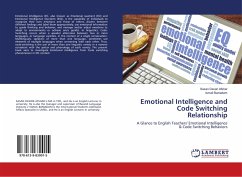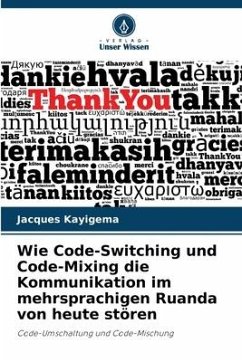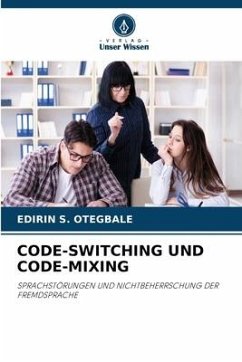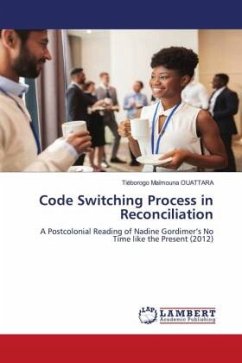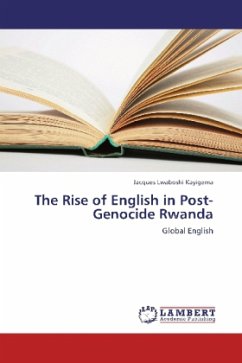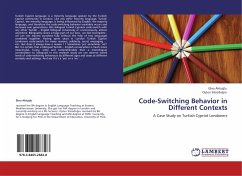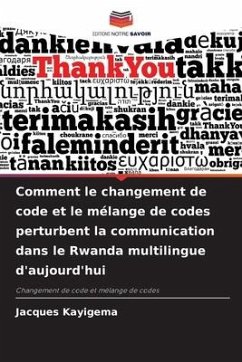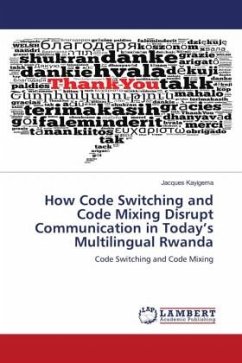
How Code Switching and Code Mixing Disrupt Communication in Today's Multilingual Rwanda
Code Switching and Code Mixing
Versandkostenfrei!
Versandfertig in 6-10 Tagen
29,99 €
inkl. MwSt.

PAYBACK Punkte
15 °P sammeln!
In language contact situations, bilingual speakers sometimes shift from one language to another to make themselves better understood, but very often distorting effective communication. Communication is always said to be a double-edged sword. The speaker needs to send a clear message and the hearer should receive it well. Otherwise, poor communication will result in negative interpretation of the message. English, as global language, has had great influence over most languages of the world for nearly two centuries now. The expansion of English is no exception in Rwanda, though. For the last two...
In language contact situations, bilingual speakers sometimes shift from one language to another to make themselves better understood, but very often distorting effective communication. Communication is always said to be a double-edged sword. The speaker needs to send a clear message and the hearer should receive it well. Otherwise, poor communication will result in negative interpretation of the message. English, as global language, has had great influence over most languages of the world for nearly two centuries now. The expansion of English is no exception in Rwanda, though. For the last two decades, the importance of English has been felt in the day-to-day activities of Rwanda. English became a third official language in Rwanda just after the 1994 genocide and a compulsory language of instruction since January 2009. This book discusses the increasingly spread of English in post-genocide Rwanda and its impact on Kinyarwanda and French. English has risen sharply for the nearly three decades because of the will of the Rwandan government to find ways of communicating with the external world in a more powerful language, English, than the previously predominant one, French.



